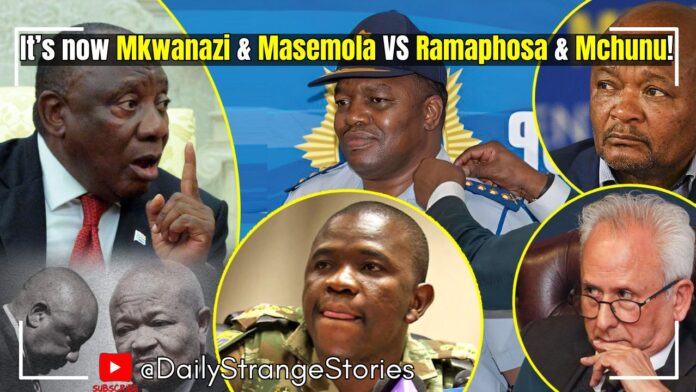Police Commissioner Reveals Five Political Killing Dockets Were Ready for Arrests, But No Action Taken
PRETORIA – In a damning testimony before the Madlanga Commission on Thursday, KwaZulu-Natal (KZN) Police Commissioner Lieutenant General Nhlanhla Mkhwanazi revealed that five of the 121 case dockets that were taken from the Political Killings Task Team (PKTT) were ready for arrests, yet no action was ever taken. Mkhwanazi’s testimony provided further details on the task team and the controversial movement of the dockets to the SAPS head office in Pretoria.
Speaking at the Brigitte Mabandla Justice College, Mkhwanazi highlighted a breakdown in communication regarding the future of the task team. He testified that the instruction to disband the unit was never officially communicated to him, leading to confusion among the police officers who continued with their work.
“The instruction [to disband the task team] was not officially given to me. It would have been sent to the national commissioner, and the national commissioner did not communicate anything to me. What I know is that the team continued working; it never stopped,” said Mkhwanazi.
He confirmed, however, that the number of members in the team was significantly reduced, which he believed might have been influenced by budget constraints. “However, the number of members that were deployed in the team was reduced; the reason for the reduction might have been influenced by the budget, but the national commissioner is in a better position to explain what led to the reduction in terms of the number of personnel. There is a number of police officers who were thrown and went back to their stations, while others remained.”
Dockets Transferred to Pretoria and Left Stalled
During this period of confusion, the dockets from the PKTT were transferred to Pretoria in two separate batches. On 26 March 2025, 118 ‘under investigation’ dockets were handed over to Lieutenant General Khosi Senthumule on the instruction of Lieutenant General Shadrack Sibiya. A second batch of three additional dockets was handed over to the SAPS head office on 10 April 2025, also on Sibiya’s instruction, bringing the total number of dockets to 121.
Mkhwanazi stated that his involvement in the matter was limited to a briefing he received in May, when he was informed that the dockets were already in Pretoria. He was not told that the dockets were handed over in batches. “My involvement in this is when I first received a briefing in May that the dockets are already in Pretoria. It was not explained that they went in batches; it was said 121 dockets are already in Pretoria, and when I asked who directed that, they said General [Dumisani] Khumalo was the one who ordered that the dockets be moved. The people who facilitated that move are in a better position to explain. My involvement is limited to the briefing I got. I got involved when the dockets were returned to KZN, which started with a meeting held between me, the acting divisional commissioner of detective services, General Khumalo and my deputy. Upon agreement, the dockets were signed back to the task team in the same form as they were handed over.”
A Failure to Act on Arrests
The most troubling part of Mkhwanazi’s testimony was his assertion that no further investigation was conducted on the dockets while they were at the head office. More concerningly, no action was taken on the five dockets that were ready for arrests.
“For the period when these dockets were handed over to the head office, five of them had instructions to arrest suspects. Those dockets sat among the total dockets in the head office, and those arrests were not effected," Mkhwanazi said.
He found it "more troubling" that the head office's detective services had conducted an inspection on these dockets. In their inspection, they would have seen that the investigation was complete and that suspects should have been arrested. Mkhwanazi speculated on the reasons for the inaction. “I would not know why it was not done; they are in a better position to explain. I believe it could be because they were not familiar with the case and content of the docket itself, so it was going to be difficult for them to execute and arrest on something they don’t necessarily know, based on an instruction from the prosecutor, because they are in volumes and there is a lot of information in those dockets.”

Follow Us on Twitter











